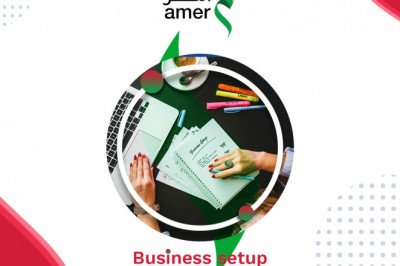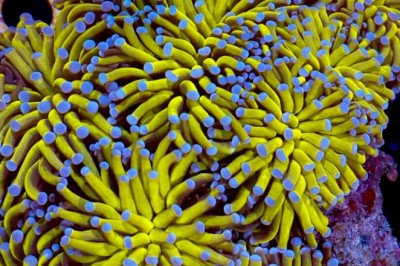views
The first and foremost of many major career-related decisions you will make in your life is selecting a subject stream for Class 11th and 12th. After spending your primary years in a school studying a wide range of subjects, this is the moment when you have to choose a specialized stream that best meets your interests, abilities, and career aspirations. Don't worry if you haven't yet defined a specific career objective; there is still plenty of time to do so. While choosing a stream is easier than choosing a career, it is still important to make an informed decision because your stream might influence your entire career. After Class 10th, there are three main streams to choose from Science, Commerce, and Humanities/Arts, each with its concepts and theories, their methodologies, subject possibilities, and career options. Science is comprised of scientific theories and applications, whereas Commerce is comprised of trade and business, and Humanities involves the liberal arts.
In this blog, we will focus on the 11th science subject. Knowing what knowledge each subject offers will be of great assistance to you. So let's discuss the 11th science subject.
Now that the results of the 10th-grade board exam are out, do you want to know what to do next after 10th? Brainwonders gives you a platform called Marks2Career to help you figure out the right career route after 10th. Follow the link to find out more: https://youtu.be/8iNX2fNChAM
This Blog Includes:
Compulsory 11th Science Subjects
- Physics
- Chemistry
- Biology
- Mathematics
- English
Optional 11th Science Subjects
- Computer Science
- Informatics Practices
- Economics
- Engineering Drawing
- Psychology
- Physical Education
Subjects in the Science Stream after Completing 10th Grade
The Science stream is divided into two branches: Medical (PCB) and Non-medical (PCM). The distinction between the two is in the third subject chosen. In other words, while both medical and non-medical students must take Physics, Chemistry, and Mathematics, the medical stream requires Biology as a third subject in place of Mathematics. Lastly, students can choose any optional subject to complete a total of five subjects alongside one language subject as English.
Detailed information about the 11th Science subject given below:
1. Physics
Physics is the science that includes matter, motion, energy, and force, and it is one of the world's oldest studied academic areas. It focuses on figuring out how things work, function, and comes in contact to generate more energy for further motions. Advances in physics, such as the study of electromagnetic, thermodynamics, mechanics, nuclear physics, and solid-state physics have enabled tremendous technological improvements. Physics in the 11th and 12th grades aids in the development of observational, analytical, investigative, and decision-making skills, as well as conceptual comprehension, creative thinking, and problem-solving abilities.
Recommended: Online Career Counselling & Career Guidance | Best Career Counsellors – Brainwonders
The following are some of the topics you'll learn about:
- Kinematics
- Motion's Laws
- Thermodynamics
- Electrostatics
- Electromagnetic Waves
- Electronic Devices
Working as a physicist, astronaut, data scientist, technician, or engineer are just a few of the career opportunities available after studying physics.
2. Chemistry
Everything in the universe is made up of atoms and matter, and chemistry is the study of the composition, properties, and structure of matter, including atomic structure and chemical reaction modifications. In classed 11th and 12th level, new areas of chemistry, such as synthetic materials, natural resources, biomolecules, and industrial chemistry are also covered, ensuring that you have a complete understanding of Chemistry basics and current advancements. Your theoretical studies will be bolstered by practical lab experiments.
Recommended: Online Aptitude Test: How to take Career Aptitude Test? – Brainwonders
The following are some of the topics you will study in the Chemistry stream:
- Molecular Structure and Chemical Bonding
- Thermodynamics of Chemical Reactions
- The study of organic substances is called organic chemistry.
- Kinetics of Chemical Reactions
- Chemistry of the Surface
After studying chemistry, you could work as a lab scientist, chemical engineer, biochemist, flavor chemist, or analytical chemist in research, pharmaceuticals, or healthcare.
3. Biology
The term "biology" comes from the Greek language where "bios" means "life" and "logos" means "study," therefore it literally means "study of life forms." That is precisely what biology is. Biology examines the physical structures, physiological systems, chemical processes, molecular interactions, and development and evolution of living species including plants and animals. Biology is a subject taught in grades 11th and 12th that focuses on establishing a solid conceptual foundation while also making a connection of the subject with the real-world technological advancements inclusive of agriculture, health, and industry.
The following are some of the topics you'll learn about:
- Plants and Animals' Structural Organization
- Structure and Function of the Cell
- Physiology of Plants
- Physiology of the Human
- Evolution and Genetics
- Applications of Biotechnology
After studying Biology, you have a plethora of career options, including the most popular path of medicine, whether it is MBBS, Ayurveda, or Homeopathy. Apart from medicine, you can also work in biotechnology, dentistry, veterinary science, pharmaceuticals, botany, zoology, marine biology, genetics, bioinformatics, microbiology, and other fields.
Recommended: What is IQ Test | How to Take IQ Test Online? IQ Test for Kids – Brainwonders
4. Mathematics
Mathematics is a science of numbers that is both the most apprehensive though the most appreciated subject among students with applications in everything from money transactions to architecture, art, engineering, and sports. Math focuses on the concepts of amount, geometry, calculations, change, structure, space, etc. You study the concepts of underlying processes and skills in Class 11th -12th as well as how to work with calculations and reason while solving a problem or proving a result, and how to apply gained skills to solve problems using several methods. You need to choose Mathematics as another major subject if you are pursuing the Medical stream in Sciences (PCB).
The following are some of the topics you will study:
- Algebra
- Calculus
- Mathematical Reasoning is a type of reasoning that is used to solve problems.
- The term "linear programming" refers to a type of programming that is used to solve problems.
- Probability
- Geometry with three dimensions and vectors
If you decide to change your mind about a profession in the science stream after studying mathematics in Class 11th and 12th, you will have a choice of employment alternatives, including those in the field of business. Engineering, computer science, insurance, statistics, economics, finance, and accountancy are some of the professions available.
5. English
English is an obligatory subject taught in Class 11th and 12th regardless of the stream because it is one of India's official languages and the most widely spoken language on the planet. Considering that English is a widely used language across India especially in offices, colleges, and online, having a basic understanding of the language is always beneficial.
The concepts in English focus on improving one’s reading, writing, grammar, and listening/speaking skills in English in Class 11thand 12th, preparing students for higher studies as well as immediate employment. Mass communication, journalism, teaching, public relations, and blogging are all possible career paths after learning English. The study of English will also help you improve your general communication and comprehension abilities, which will be useful in almost any career where English is the primary language of communication.
Recommeded: What is Personality Test | How to Take the Personality Test? – Brainwonders
Science Stream with Optional Subjects
You also need to take a fifth optional course in addition to the four compulsory subjects in the Science stream (Physics, Chemistry, English, and Biology/Mathematics). Some schools also allow you to apply for a sixth course, giving you the option of choosing two optional subjects.
The following are some of the optional Science subjects:
1. The field of computer science
Computer Science is a broad study of computer applications, programming languages, computing logic, and networking technologies that have grown extremely popular among students.
2. Informatics Practices
Informatics Practices, while comparable to Computer Science, focus on information processing, computer systems, device applications, program development, and integrated device electronics.
3. Economics
Students in the Commerce stream have Economics as their core subject but it is also a popular elective for students in the Science and Humanities streams. Economics comes in social sciences that investigate how economies work, their basic components, as well as how markets interact at national and international levels.
4. Engineering Drawing
Engineering drawing, often known as engineering graphics, is a specialist topic that teaches students how to graphically communicate ideas and information needed to design or analyze machines, structures, and systems.
5. Psychology
Psychology, which is defined as the study of the mind, has exploded in popularity in recent years. Psychology is the study of people's mental processes, behaviours, and experiences. You would learn about the fundamental concepts and principles in the discipline, such as emotions, personality, intelligence, and so on, in Class 11th and 12th.
6. Physical Education
Physical Education is another popular optional course that is both scoring and beneficial to your physical activity. Physiology, physical fitness, numerous sports, and yoga are all topics covered in Class 11th and 12th.
After completing the Science Stream, you have a variety of career options.
After completing the Science stream in Classes 11-12, there are numerous career opportunities accessible; however, the topics are challenging and will take work. As a result, you should only pursue this path if you are certain of your interest and aptitude for these concepts.
You should also have a good idea of the professional paths and courses you want to pursue after graduating from high school. If you're unsure which path to take, consider seeking career counselling from Brainwonders to help you figure out which path is best for you.











